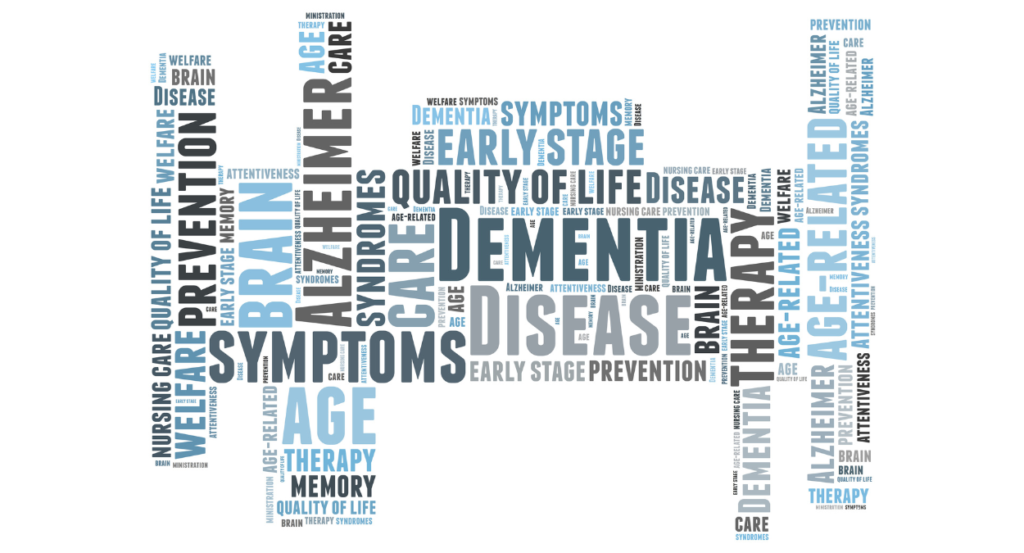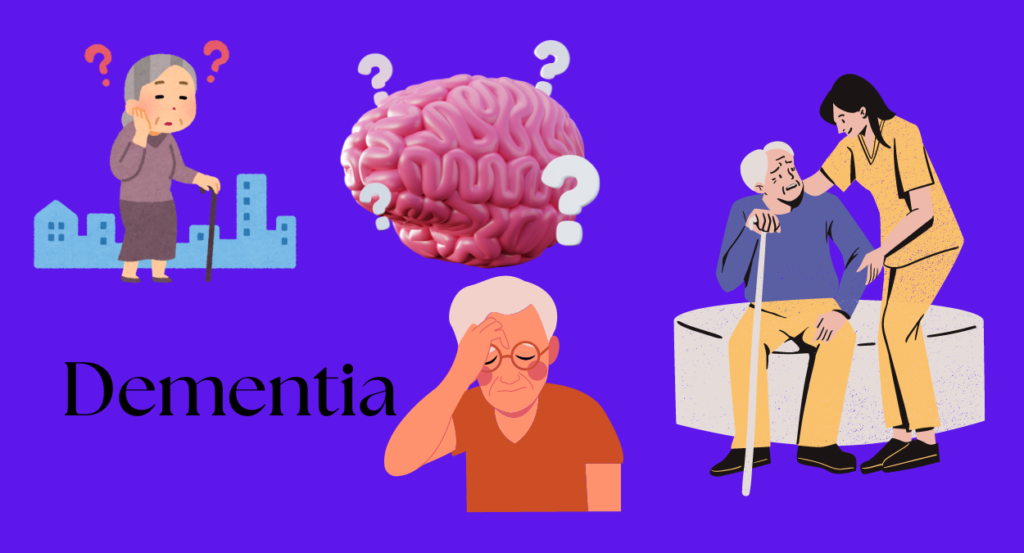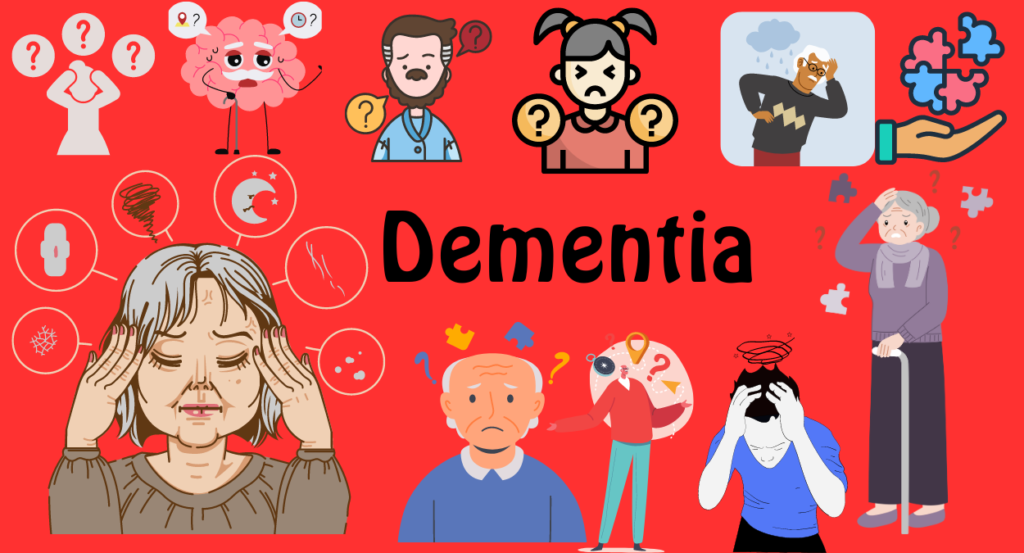The First Signs of Dementia Can Be Easily Missed, What is Dementia? Understanding Dementia vs. Normal Aging, Common Early 8 Signs of Dementia
Have you ever noticed someone struggling to remember a name or misplacing their keys too often? You might brush it off as “just aging,” but sometimes, these could be the first subtle whispers of dementia. It’s a condition that creeps in quietly, often mistaken for stress or the simple quirks of getting older. Dementia doesn’t announce itself with a bang; instead, it tiptoes into your life, making the early signs easy to miss. Let’s dive into what these early signs look like and why they’re so easily overlooked.
What is Dementia? A Brief Overview
Dementia isn’t just one disease—it’s an umbrella term for a range of cognitive impairments that affect memory, thinking, and behavior. Alzheimer’s is the most common type, but there are others like vascular dementia, Lewy body dementia, and frontotemporal dementia. Unlike normal aging, where occasional forgetfulness is common, dementia symptoms progressively worsen, impacting daily life.

Understanding Dementia vs. Normal Aging
It’s essential to distinguish between dementia and the normal aging process. Am I forgetting a name and remembering it later? Normal. Repeatedly forgetting familiar names or getting lost in a familiar place? That’s a red flag.
Common Early 8 Signs of Dementia
The early symptoms of dementia can vary, but some tell-tale signs are often missed. Here’s what you need to watch out for:
1. Memory Loss That Affects Daily Life
Memory issues are often the first sign. Forgetting recently learned information, asking the same questions repeatedly, or relying heavily on memory aids can signal the onset of dementia. Unlike normal aging, this isn’t about misplacing your keys once but forgetting what they’re for.
2. Difficulty with Problem-Solving or Planning
Struggling with familiar tasks, like managing finances or following a recipe, can be an early warning. You might notice that someone who used to balance their checkbook effortlessly now struggles with simple math or keeping track of bills.
3. Confusion with Time or Place
Ever wake up and wonder what day it is? It happens. But if it’s a regular occurrence and you’re missing appointments or losing track of seasons, this could be more than just a bad day—it’s a potential dementia flag.
4. Trouble Understanding Visual Images and Spatial Relationships
This one often flies under the radar. People might struggle to judge distances, have difficulty reading, or find driving suddenly overwhelming. It’s not just about needing new glasses—it’s a deeper cognitive issue.
5. Difficulty in Finding Words and Communicating
Dementia affects how people express themselves. They might pause frequently in conversations, struggle to find the right words, or call familiar objects by the wrong name. It’s not just a simple slip-up; it’s a pattern that disrupts communication.
6. Misplacing Things and Losing the Ability to Retrace Steps
Everyone misplaces things occasionally, but when someone frequently puts things in odd places (like placing the remote in the fridge) and can’t retrace their steps, it’s cause for concern.
7. Withdrawal from Social or Work Activities
A once social butterfly may suddenly shy away from gatherings, hobbies, or work projects. This isn’t just about introversion—it’s often due to the fear of not being able to keep up with conversations or activities.
8. Changes in Mood and Personality
Dementia doesn’t just impact memory; it can change who you are. You might notice increased anxiety, depression, or even sudden bursts of anger. Someone who was once cheerful might become suspicious or fearful without apparent reason.

Why Are Early Signs Often Overlooked?
Identifying dementia early isn’t easy, primarily because its initial signs are subtle and can easily be confused with normal aging or other issues.
Subtlety of Symptoms
The symptoms start small. A misplaced wallet here, a forgotten appointment there. Nothing seems major enough to raise alarms, but these small signs add up.
Attributing Signs to Stress or Aging
Stress, fatigue, and aging are often blamed for the early symptoms of dementia. It’s easy to brush off forgetfulness as just a part of life, especially when we’re juggling a million things at once.

The Importance of Early Detection
Catching dementia early can make a significant difference. Early detection allows for more effective management, potential slowing of symptoms, and better planning for the future. It also opens doors to clinical trials and therapies that can help improve quality of life.
Steps to Take If You Notice Early Signs
So, what do you do if you spot these signs in yourself or a loved one? Here’s where to start:
Talking to a Healthcare Professional
Don’t wait. Discussing symptoms with a healthcare provider is crucial. They can conduct memory tests, brain scans, and other assessments to provide a clearer picture.
Lifestyle Adjustments That May Help
Though there’s no cure, lifestyle changes can help manage symptoms. Engaging in regular exercise, maintaining a healthy diet, staying socially active, and keeping the brain engaged with puzzles or learning new skills can be beneficial.
Conclusion
Dementia doesn’t come knocking on your door—it sneaks in quietly. The early signs are subtle, often camouflaged by everyday life, stress, or simple aging. But being aware of these signs and taking proactive steps can make all the difference. Don’t ignore the whispers; they might be telling you something important. Early detection is key to managing and living well with dementia.
FAQs
1. Can dementia symptoms appear suddenly?
Dementia usually progresses slowly, but some forms, like vascular dementia, can have sudden symptoms following a stroke.
2. Is memory loss always the first sign of dementia?
No, other symptoms like mood changes, confusion with time or place, or difficulty in problem-solving can also be early indicators.
3. Can young people develop dementia?
While rare, early-onset dementia can occur in people under 65, sometimes as early as in their 30s or 40s.
4. Is forgetfulness a normal part of aging?
Mild forgetfulness is normal with aging, but consistent memory loss affecting daily life isn’t and could be a sign of dementia.
5. Can lifestyle changes reduce the risk of dementia?
Yes, staying mentally and physically active, eating a balanced diet, and maintaining social connections can help lower the risk.






